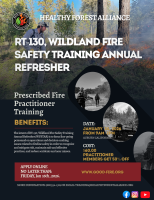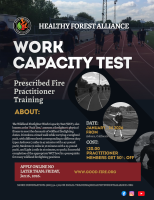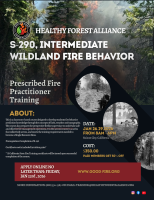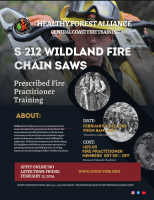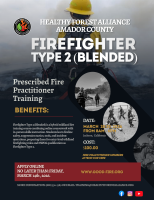"Empowering Excellence, Uniting Expertise: Igniting Tomorrow's Fire Practitioners"
Wildland Firefighter Work Capacity Test:
TEST DESCRIPTION:
The Work Capacity Test (WCT), commonly known as the Pack Test, is a physical fitness assessment used by wildland firefighting agencies to ensure personnel can safely handle the strenuous demands of fireline work. It is a standardized test with three levels—Arduous, Moderate, and Light Duty—designed to match the physical requirements of different firefighting and support roles.
Arduous Duty requires walking 3 miles in 45 minutes while carrying a 45-pound vest, simulating the heavy loads and endurance needed on the fireline.
Moderate Duty involves a 2-mile walk in 30 minutes with a 25-pound vest, for positions with less field exposure but that still require fitness.
Light Duty is a 1-mile walk in 16 minutes with no vest, intended for support roles with minimal physical strain.
The WCT measures aerobic capacity, muscular strength, and endurance, ensuring personnel can perform safely and effectively in wildfire environments. Completion of the appropriate level is often required for qualification cards (Red Cards) and assignment eligibility.
By aligning test difficulty with job demands, the WCT provides a fair, job-related standard to protect both firefighters and the communities they serve.
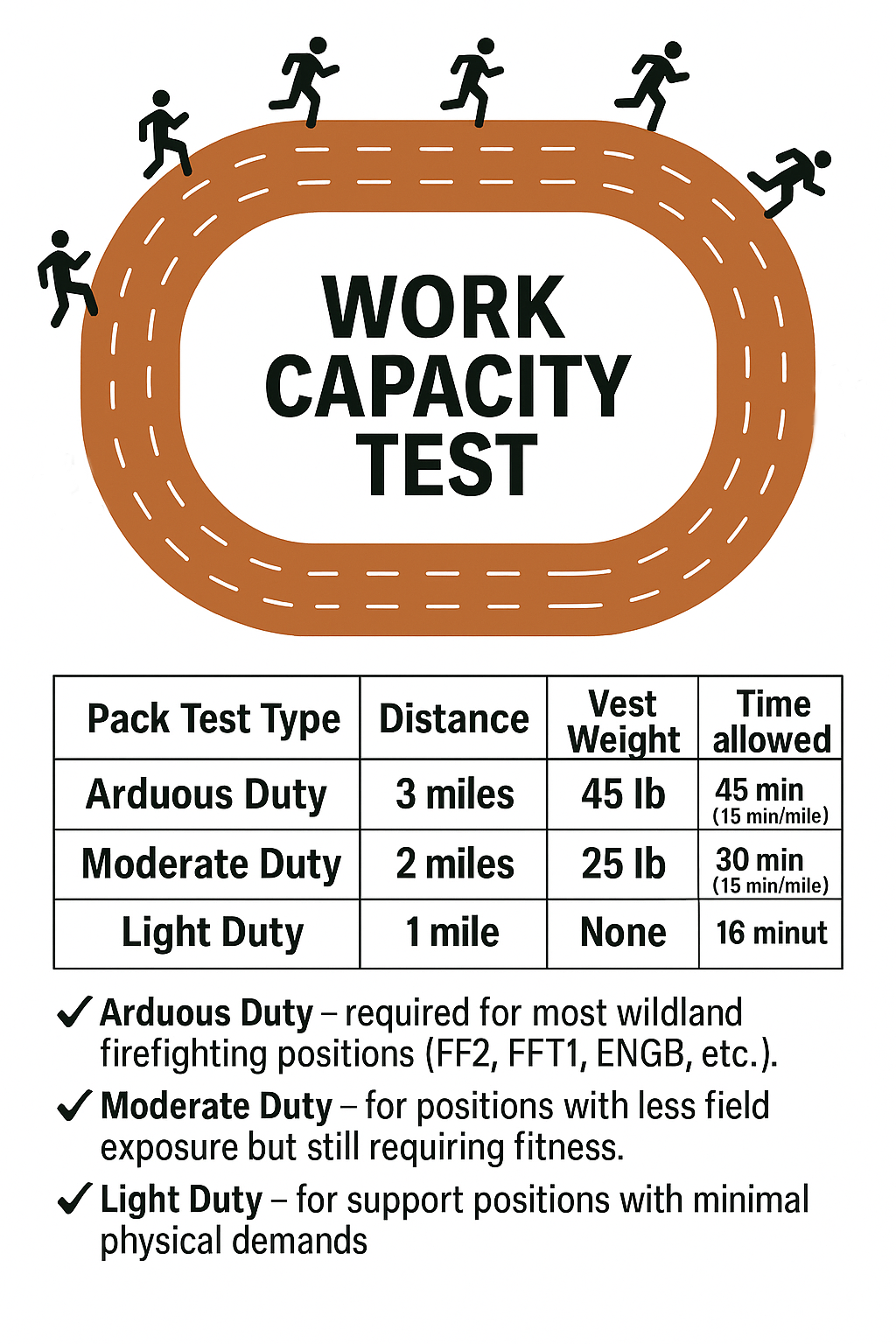

WORK CAPACITY TEST PREPARATION:
Preparing for the Work Capacity Test (WCT) is essential to ensure safety, performance, and success on test day. The WCT measures endurance, strength, and aerobic fitness, so training should focus on gradually building these areas.
Preparation Tips:
- Train Early – Begin conditioning at least 6–8 weeks before the test to build stamina.
- Walk with Weight – Practice walking briskly with a weighted backpack or vest, starting lighter and progressing toward the test weight (25–45 lbs).
- Build Endurance – Incorporate long walks or hikes (2–4 miles) at a steady pace to match test distances.
- Strength Training – Focus on legs, core, and back to handle carrying extra weight. Squats, lunges, and step-ups are especially effective.
- Cardio Conditioning – Add activities like jogging, cycling, or rowing to improve aerobic capacity.
- Pace Yourself – Practice walking at a 15-minute mile pace (4 mph) to match test requirements.
- Break in Gear – Train with the same shoes you’ll use on test day to prevent blisters or discomfort.
- Stay Hydrated & Rested – Good hydration, nutrition, and recovery are crucial for performance and injury prevention.
Consistent training and preparation help ensure that candidates pass the WCT safely and confidently.
Test Levels and Requirements:

Arduous Duty (Pack Test):
The Arduous Duty Work Capacity Test (WCT), commonly known as the Pack Test, is the highest fitness standard required for wildland firefighting positions. It evaluates an individual’s ability to perform strenuous tasks under demanding conditions, ensuring they can meet the physical challenges of the fireline.
To pass, candidates must walk 3 miles in 45 minutes (a 15-minute mile pace) while carrying a 45-pound weighted vest. Running or jogging is not permitted; the test must be completed at a fast, consistent walking pace.
This level of testing is required for positions such as Firefighter Type 2 (FFT2), Firefighter Type 1 (FFT1), and Engine Boss (ENGB), as well as other roles directly involved in wildfire suppression.
The Arduous Pack Test measures:
- Aerobic endurance – the ability to sustain effort over time.
- Muscular strength – particularly in the legs, back, and core.
- Work capacity – replicating the physical demands of carrying gear, tools, and supplies in rugged terrain.
By ensuring personnel can meet these requirements, the Arduous Duty Pack Test provides a fair, job-related measure of readiness, helping to protect firefighter safety and effectiveness on the fireline.
Moderate Duty (Field Test):
The Moderate Duty Work Capacity Test (WCT), often called the Field Test, is designed for positions that require a reasonable level of fitness without the extreme physical demands of the fireline. It ensures personnel can perform duties that involve walking, carrying light loads, and working in variable outdoor conditions.
To pass, candidates must walk 2 miles in 30 minutes (a 15-minute mile pace) while carrying a 25-pound weighted vest. As with all WCT levels, running or jogging is not permitted—the test must be completed at a steady, brisk walk.
This test applies to roles that support fire operations but are not directly engaged in front-line suppression. These may include certain fire camp staff, dispatchers, technical specialists, or field support positions who may still face moderate physical activity in rugged environments.
The Moderate Duty Field Test measures:
- Cardiovascular fitness – the ability to maintain a steady pace over distance.
- Muscular endurance – managing moderate weight loads comfortably.
- Field readiness – ensuring staff can safely handle the physical aspects of their assignments.
By aligning fitness standards with job demands, the Moderate Duty Test protects personnel safety while ensuring they are prepared for field responsibilities.
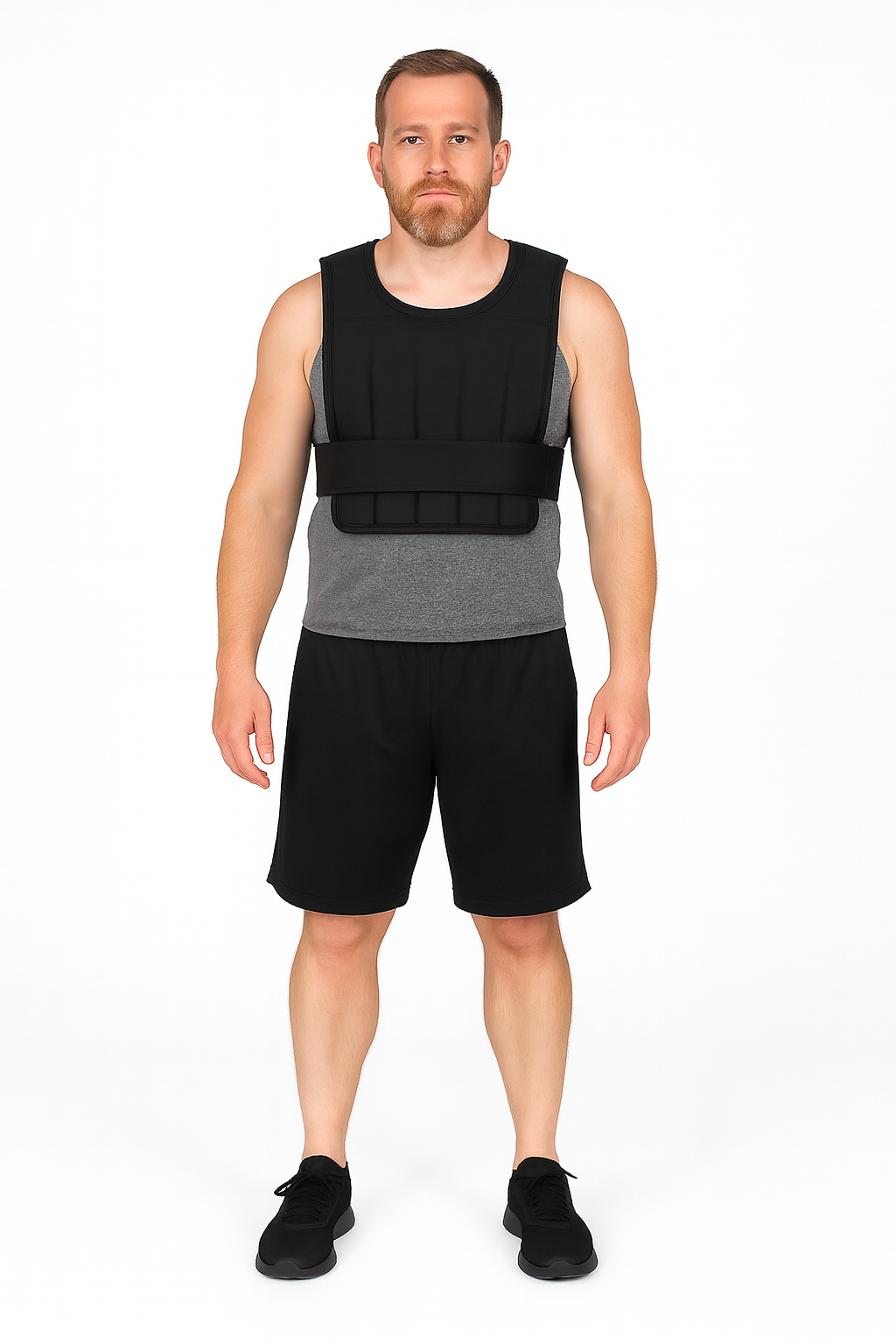
Moderate Duty (Field Test): 25-pound pack, completed in 30 minutes or less.

Light Duty (Walk Test): 1-mile walk in 16 minutes, without a pack.
Light Duty (Walk Test):
The Light Duty Work Capacity Test (WCT), also known as the Walk Test, is the lowest physical fitness standard and is intended for support positions that require minimal physical exertion. It ensures that personnel can safely perform duties that involve light activity in and around incident facilities.
To pass, candidates must walk 1 mile in 16 minutes or less with no weight. Unlike the Arduous or Moderate levels, this test is designed simply to verify a baseline level of cardiovascular health and mobility.
The Light Duty Walk Test applies to positions such as dispatchers, drivers, clerical staff, communications personnel, and other support roles who contribute to fire operations without engaging in strenuous field activity.
The Walk Test measures:
- Basic cardiovascular fitness – ensuring staff can sustain light activity.
- Mobility and stamina – confirming the ability to work in busy, extended operational environments.
- Readiness for support roles – guaranteeing individuals can function safely during long shifts in incident support settings.
By providing a simple, fair measure of fitness, the Light Duty Walk Test helps ensure all personnel—whether on the fireline or in support—are physically capable of meeting the demands of their role.
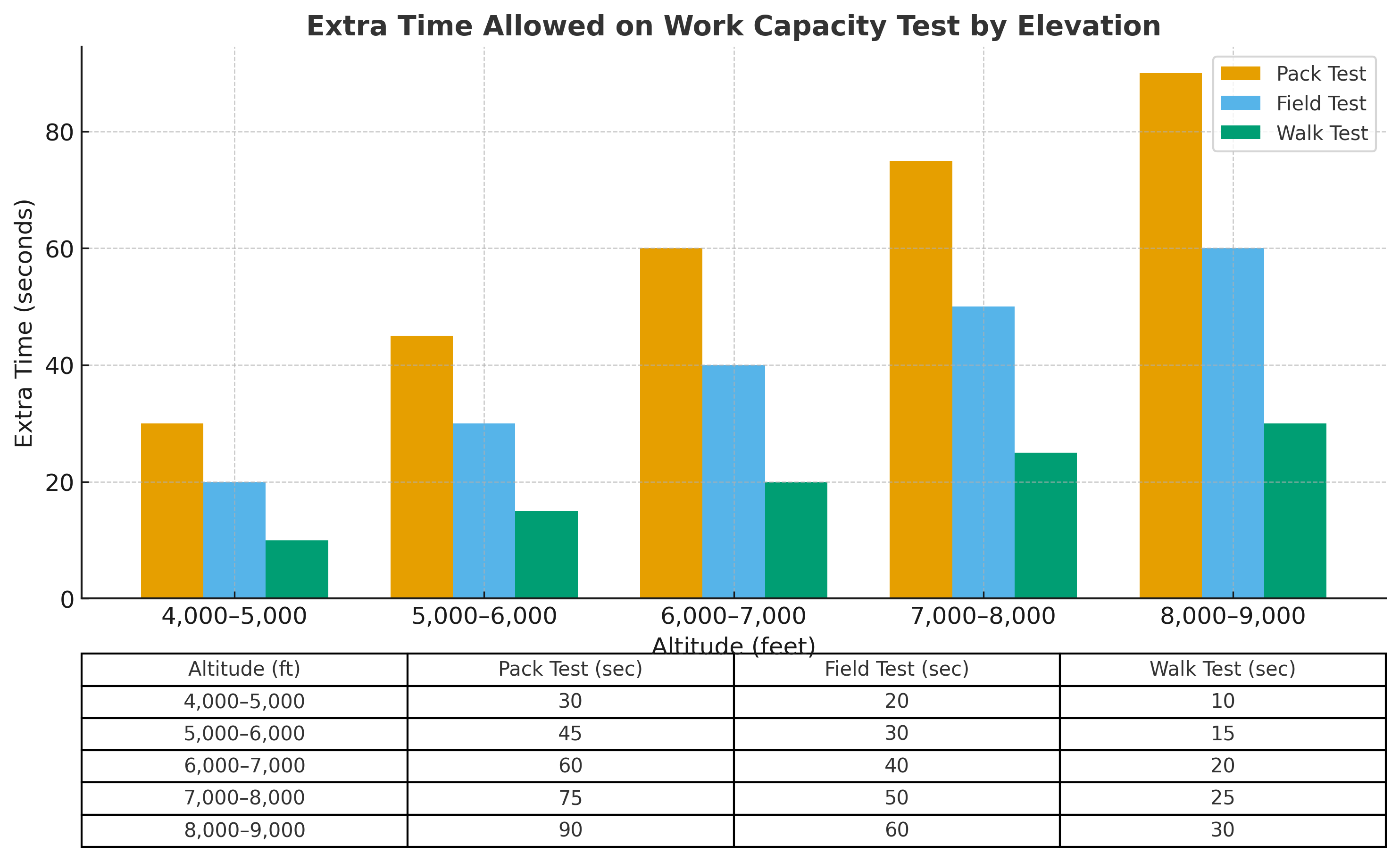
When completing the NWCG Work Capacity Test (WCT), additional time is allowed for higher elevations to account for reduced oxygen levels. The adjustment applies to the Pack Test, Field Test, and Walk Test, beginning at 4,000 feet. Extra time ranges from 30 seconds for the Pack Test at 4,000–5,000 feet, up to 90 seconds above 8,000 feet, with proportional increases for the Field and Walk Tests. These elevation adjustments ensure fair evaluation of fitness while recognizing the physiological challenges of working at altitude. Always consult the official WCT brochure for the exact elevation bands and time allowances.
UPCOMING TRAINING
RT-130, Wildland Fire Safety Training Annual Refresher
Work Capacity Test - Arduous, Moderate and Light Available
S-290, Intermediate Wildland Fire Behavior
S-212 Wildland Fire Chainsaws - Central Coast Training
Wildland Firefighter Type 2 (Blended) - Amador County
Please Support Our Corporate Members
HELPING LANDOWNERS PROMOTE HEALTHY FORESTS USING "GOOD FIRE"
how you can help
LEARN MORE ABOUT PRESCRIBED FIRE AND HOW IT CAN BE USED TO PROMOTE HEALTHY FORESTS
FROM OUR BLOG
🔥 Small Teams, Big Impact: The Rise of Micro Prescribed Burn Associations Across California,...
“So You’ve Masticated Your Land for Fire Safety… Now What?” Across California, thousands of...
🔥 The Do’s and Don’ts of Pile Burning for Property Owners in California When used correctly, pile...


